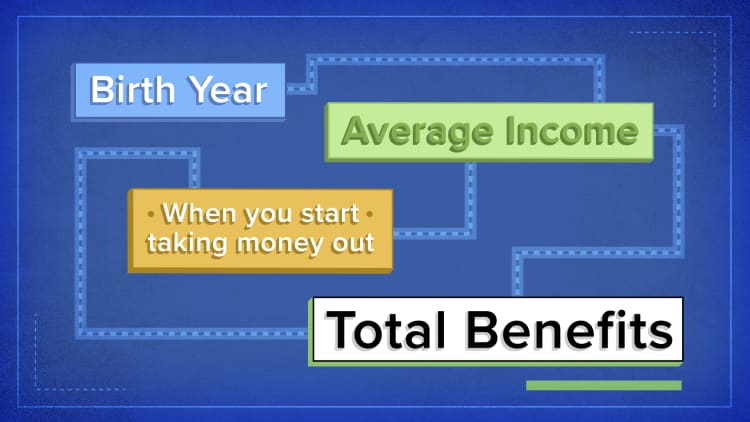You may want to brush up on your knowledge of the ins and outs of Social Security before you claim benefits.
MassMutual posed 12 questions to 1,500 Americans approaching retirement via an online poll. More than half — 52% — either failed or barely passed.
Of those respondents, 33% failed and 19% got a D.
The survey respondents ranged in age from 55 to 65 and have not yet filed for Social Security benefits. Individuals ages 60 to 65 generally fared better on the test than those ages 55 to 59.
The one question that most individuals were able to answer correctly was whether their benefits would be reduced if they started collecting early, before their full retirement age.
More from Personal Finance:
Paper stimulus checks could be delayed by up to 5 months
Answers to your top questions on stimulus payments
Social Security recipients not required to file tax returns for stimulus checks
The question most got wrong was whether or not you have to be a U.S. citizen to be eligible for benefits.
"We're getting the message out that there are choices, and people have to really understand what the future would hold for them relative to Social Security planning," said David Freitag, a financial planning consultant at MassMutual. "The bad news is that we still have a lot more to do."
The following are the true/false questions. Take the quiz and see how well you do.
True or False?
- If I take benefits before my full retirement age, they will be reduced for early filing.
- If I am receiving benefits before my full retirement age and continue to work, my benefits might be reduced based on how much I make.
- Once I start collecting Social Security, my benefits will never change.
- If I have a spouse and he or she passes away, I will receive both my full benefit and my deceased spouse's full benefit.
- If I have a spouse, he or she can receive benefits from my record even if he or she has no individual earnings history.
- The money that comes out of my paycheck for Social Security goes into a specific account for me and remains there, earning interest, until I begin to receive Social Security benefits.
- Under current Social Security law, full retirement age is 65 no matter when you were born.
- As a divorced person, I might be able to collect Social Security benefits based on my ex-spouse's earnings history.
- Under current law, Social Security benefits could be reduced for everyone in 2035.
- If I file for retirement benefits and have dependent children age 18 or younger, they also may qualify for Social Security benefits.
- If I delay taking Social Security benefits past the age of 70, I will continue to get delayed retirement credit increases each year I wait.
- I must be a U.S. citizen to collect Social Security retirement benefits.

Answers:
- True
- True
- False
- False
- True
- False
- False
- True
- True
- True
- False
- False


